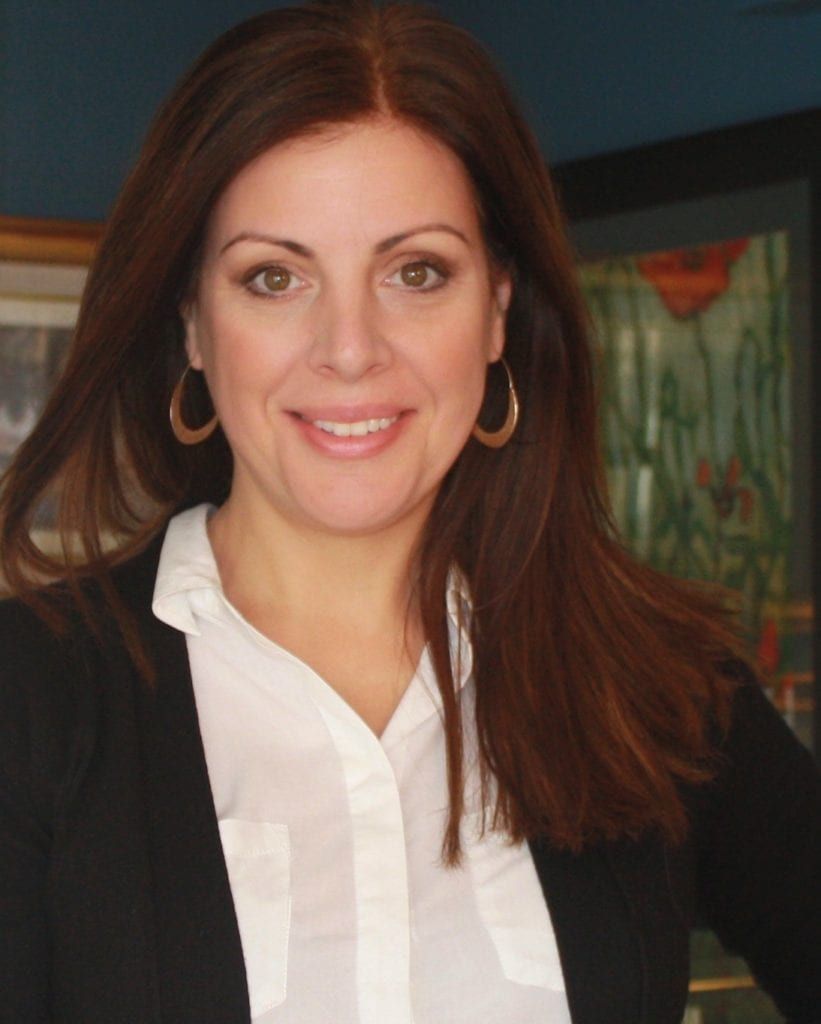Digitally Transform Your Catering Business with Karin Muscarella [Podcast]
- ezCater
- •
- 15 Min Read
- •
The Catering Feed is now available on iTunes, Spotify, and Google Podcasts.
At ezCater, we want to help restaurants grow a successful catering business. Whether you’re in the early stages of building a business or an industry veteran, let us help you dip into the $61.5 billion catering market. In each episode of “The Catering Feed,” we talk to restaurant industry leaders of thriving brands who share insights and tactics to ramp up your catering business.
How do you reach customers, and deliver great old-fashioned hospitality, through a screen? In this podcast, we go inside the mind of digital transformation expert Karin Muscarella to find out. Karin shares ways to digitally transform your catering business, from delivering online hospitality to reconfiguring back-of-house operations. Also, hear her talk about different restaurant technology platforms to keep up with the “consumer experience of the future.”

Karin Muscarella is the former National Director for Off-Premise Sales at Paris Baguette, a South Korea–based chain with 85 U.S. stores and over 3,000 restaurant locations worldwide. Karin is a well-known digital transformation and customer service expert, having honed her skills over two decades for multi-unit restaurant, hotel, and event-planning firms.
Grow your customer base with online ordering.
TRANSCRIPT:
Genevieve Babineau: Welcome to The Catering Feed: The Catering Growth Podcast, a show about growing your catering business and restaurant industry trends, powered by ezCater.
I’m your host, Genevieve Babineau, and I’m here today with Karin Muscarella. Karin is the National Director for Off-Premise Sales at Paris Baguette. She has a really incredible career—she’s worked for Juice Press, Le Pain Quotidien (LPQ), BR Guest Hospitality, and she’s really a bit of a digital transformation expert. So I’m so happy to have you here today, Karin. How are you doing?
Karin Muscarella: Good. Thank you for having me. I’m excited to be here.
Genevieve Babineau: We’re in New York City, which really is Mecca to such an incredible group of restaurant brands, both independent and national chains. I’d love to hear a little bit about what brought you to this point in your career.
Karin Muscarella: So I started out at BR Guest Hospitality and I just have a natural love for food and beverage, so that was a natural progression for me and winding up at LPQ was something that, again, just happened naturally.
Genevieve Babineau: I know that you have a real passion for digital platforms in the digital space. Before we dig into that, though, I’d love to talk about some new news that’s pretty fresh off the press. We’ve heard that Danny Meyer and the Union Square Hospitality Group made a $15 million investment in Dig Inn. I would love to hear your take on Dig Inn, and the type of brand, and why you think they would be such a great investment for a pretty big star like Danny Meyer.
Karin Muscarella: Yeah, I mean lucky them, first of all. I mean, there’s no better partner than Danny Meyer—
Genevieve Babineau: Yeah, sign me up.
Karin Muscarella: Exactly. No, I think Dig Inn is a great concept and definitely the way that the trend is going. I mean, great, healthy food served to you very quickly, price point is right. So I think that is the way that food and beverage is headed.
Genevieve Babineau: Do you think that Dig Inn specifically reflects certain needs of a younger consumer?
Karin Muscarella: Yeah, I think people are definitely more conscious about what they’re putting into their body and Dig Inn, I think, answers that.
Genevieve Babineau: I think when you hear news like this, it’s really indicative of the greater macro trends in the industry because Danny Meyer certainly invests in those up-and-coming concepts. So I think it’s a really cool thing for the rest of us to see.
Karin Muscarella: Yes, for sure.
Genevieve Babineau: So, Karin, I have heard from some reliable sources that you’re considered a little bit of a digital transformation expert. I would love to hear, is that how you started your career? How does one become a digital transformation expert?
Karin Muscarella: No, actually when I started in my career, there was very little digital effort. You know, ten years ago, all of our marketing for catering and events happened, essentially, within the four walls or from direct marketing, email marketing, very different than what our abilities are today.
Genevieve Babineau: As trends are shifting away from bricks and mortar and moving toward fast casual, different channels of off-premises, what do you think this says about the restaurant industry’s ability to still control that experience and make sure that the guest really has that hospitable environment, even if they want food off premises or really quick?
Karin Muscarella: That’s a great question. I think, you know, as things happen outside of the four walls, there are ways that we can, you know, combat that as restaurant operators, in terms of how people are receiving our brands. I think, first of all, the digital touch points are important: How are people interacting with us? What are we showing them? How easy are we making it for them to transact with us online or through mobile apps or whatever we’re doing in the digital ways? How easy are we making it for them? And then, what efforts are we putting into our brand outside of the four walls? So what does our packaging look like? How easy are we making it for people to consume our products? You know, how are we keeping it fresh? How are we getting it there on time? All of those things are ways in which we need to be mindful and thoughtful when, obviously, we’re taking it outside of the four walls.
Genevieve Babineau: I would love to hear your perspective on that data flow. From the external, digital touch points in front of the customer, all the way through to the digital resources that are used internally.
Karin Muscarella: So I think it’s—for a company to be able to think about how a consumer comes to your web page—like, how do they—how do you show up when someone searches for you, right? And what is that experience like from the first time they see you online? And how easy are you making it for them to transact? So I think that is the first thing that is, in my mind—always is—how are we representing ourselves online? And you know the ease of that, and the easier, the more enticing we make that, obviously, the sales are going to be better and people are going to come back. You’re going to create stickiness on your website.
Then the second piece of that is how are we executing? So what happens when someone places the order, where does that go? And it lands in either your restaurants or your call center or, you know, wherever it is that you’re facilitating that order.
Genevieve Babineau: So, what are those internal digital resources that a brand needs to consider?
Karin Muscarella: Well, I think the way that your digital platforms are set up will ultimately land in your lap. So whether you’re the accountant, you’re the operator, however—or whatever role you have in your restaurant business—you’re going to have to take all of the data at some point, whether it’s to balance the books, to figure out the inventory. And so figuring out how all of those data points integrate with each other is really important.
Genevieve Babineau: So as a national director, I’m guessing that you have to look at a very holistic perspective of that data flow from customer to back of house. What are some of the other key things that a leader needs to consider when they’re adopting these different technologies?
Karin Muscarella: Well, I think just starting on any kind of digital platform is not the best strategy. I think you need to look at how you’re playing in the digital field. So if you have six different tablets in your restaurant, is that really helping you or hurting you? If you don’t have an aggregator partner, maybe you want to consider one. And then if you don’t have a POS that speaks to the aggregator or any of the platform partners that you have, maybe you want to consider who your POS partner is. Then: how, after all of that data winds up in your POS, how is it sifting down to the people who actually have to manage that data? Meaning your operators, your accountants—how is all of that coming to the baseline, and what are you going to do with that information? And the best way to look at that is how am I going to get to the very basic information as quickly as possible with the least amount of integrations. And that’s tough because most platforms are really specialized to do one thing and one thing really well.
Genevieve Babineau: It seems like there are a lot of different digital resources that a leader needs to consider when building out that digital presence. How do you vet the best partners to help you in these efforts?
Karin Muscarella: I mean, I think first and foremost it’s the reputation.
Genevieve Babineau: Right.
Karin Muscarella: How long have they been around? What are people saying about them, what are my peers saying about them? Are they good to work with? I think that’s number one.
Genevieve Babineau: It’s a pretty small community, so if another operator and leader is willing to do it, I’m guessing that gives you a great vote of confidence.
Karin Muscarella: Exactly. I think, also, how long have they been around? Are they leaders in their fields? I think that’s another good question to ask yourself, and then are they willing to grow with you? I think that’s really important because digital is changing constantly, and you need to be nimble. And you could be as nimble as you want but unless you have partners who are willing to help navigate that and integrate with other companies, create reports that you need, whatever it is, you need to be able to know that they’re—you know they’ve got your back.
Genevieve Babineau: It sounds like you really need a partner who is willing to hear what your pain points are and adapt versus just kind of charging forward with exaggerating.
Karin Muscarella: Yes.
Genevieve Babineau: How do you master these digital touch points to build a long-term relationship with your customers?
Karin Muscarella: Well, I think the brand story has to be aligned through all of your digital touch points. So, from your website, through your social channels, the story has to be consistent and be bold and have a really clear mission and vision.
Genevieve Babineau: So within a few seconds they need to really know what you’re all about.
Karin Muscarella: Exactly. I think that’s the first thing. And then, as an operator, I think the most important thing is to have a good CRM if you want to be able to really strike an emotional connection, you know, when you don’t necessarily have that interpersonal connection. So the ways that you could do that are really through a CRM and that could be really as simple as having a platform that allows you to bank a client’s information and everything from what their preferences are, what their past orders were, where else are they buying from you. So if you’re also having classes inside of your restaurants, are they taking those classes? If you’re selling cakes outside of your restaurants, are they buying those cakes? Any way that they are transacting with you, you can have this data bank, as well as all of their information, and their payment system—their payment method. And it’s just easy for them to place an order with their password and everything is just seamless.
Genevieve Babineau: It really lets you tailor your approach to every individual relationship.
Karin Muscarella: Yeah, absolutely. I mean, I think the great thing about hospitality is—and having a favorite restaurant—is going to it and being recognized, right? Well, in today’s world, digitally, the way we recognize people is, there has to be a, you know, a footprint.
Genevieve Babineau: How do you find a way to have a scaled business where you potentially have hundreds, thousands, eventually millions of guests but—
Karin Muscarella: A database.
Genevieve Babineau: Yeah, exactly! But still make them all feel really valued? Yes. That’s really incredible. Paris Baguette also has a pretty [big] cult following. Really, really bought in customers for your brick-and-mortar business. So how do you start to see opportunities for digital transformation to expand your customer base and maybe introduce catering and your brand to other customers?
Karin Muscarella: Yeah, I mean for Paris Baguette, I think we have a vast amount of opportunity right now. We are focused on our website presence. We’ve also just launched an app, which is very exciting. And we’re also going to offer delivery through the app with catering and our consumer offering. And then, of course, we have our eyes set on bigger things. So e-commerce is huge, we want to be a part of it.
Genevieve Babineau: What are some of the antiquated trends that you see these days on brands’ websites regarding ordering catering?
Karin Muscarella: Well, I think—think about it from your own perspective as a consumer: Do you want to go online today and order something that you have to fill out a form for and wait for someone to respond to you? It could be 24 hours, it could be 48 hours. Or do you want to be able to just, with a click of a button, look at exactly what it is that you want to order and know exactly what it is that you’re going to get?
I think, I think we know the answer to that. And I think that just illustrates to you why there is such an importance to be able to have an online ordering platform and why you need to be in that game.
Genevieve Babineau: I was able to order some catering for my niece’s birthday while we were in the taxicab from LaGuardia Airport this morning. And I think, you know, when you’re ordering B2B catering, you probably have even less time than what I’m willing to spend on my niece’s birthday.
Karin Muscarella: Yes! I mean, think about it: If you are a personal assistant to a high-level executive, your day is spent chasing around or, you know, figuring out a calendar. You know at nine o’clock at night when you realize, “Oops, I didn’t order tomorrow’s board lunch.” What’s better than being able to go online and place your order right then and there from—at nine o’clock from your apartment? I mean, that’s really what—that’s the ease of transaction that digital allows us.
Genevieve Babineau: Or I think about the sales rep who’s traveling from one state to another. Might have a conference call and speaker. And they’re trying to place a catering order at a red light.
Karin Muscarella: Exactly.
Genevieve Babineau: What a huge disservice to that customer and to the brand, if they have to call the restaurant, sit on hold, wait for the right person to talk to them, maybe they get disconnected—it’s funny, that can hurt the relationship, right?
Karin Muscarella: Exactly.
Genevieve Babineau: So in a way having that digital, easy experience can actually, in a weird way, build relationships with your customers, just in a new way.
Karin Muscarella: Of course, I mean you literally will be a partner to them and if they can’t find it on your site, if they can’t do it with you, they’re going to find someone else to do it with. So you may as well get in the game and do it while you can.
Genevieve Babineau: In addition to making the transaction far easier for the customer, what are the other benefits of online ordering?
Karin Muscarella: Reports. I can’t say enough about reports.
Genevieve Babineau: You’re a junkie.
Karin Muscarella: Exactly. I think reports can help you see who your best clients are, what your top sellers are. They can pull a product mix so you can see what’s selling, what’s not. Lapsed users. I mean, these are all things that are going to translate to the bottom line, which is money in your pocket, right? So reporting is definitely one feature.
The other thing is the abandoned cart feature that many platforms offer, which is a great feature. And this is something that we’ll tell you when you have consumers on your site that are looking to purchase and they’re putting things into their carts and then they abandon it. This gives an automatic response to those exact customers, asking them if they wanted to complete their purchase and hopefully convert them into a sale. So these are just a few ways that you can benefit from having an online ordering system.
Genevieve Babineau: I think sometimes there are brands that might have limited resources and so they’re nervous to invest in online ordering. But there are so many different tools of varying degrees of investment that can support with that. And it’s a little ironic because when you’re in a fight for sales, you really can’t miss any opportunity to get that customer to a “yes,” to get them to complete that transaction. So I think it’s really interesting hearing you talk about that abandoned cart.
Karin Muscarella: Yeah, I think that for brands that are challenged with resources and stuck between being able to scale, there are partners out there that can help with this. ezCater, ezOrdering actually, is a great resource. There are no implementation fees, and there are lower commissions, so this is a great way to start the digital presence if you don’t have one.
Genevieve Babineau: And I think—really whatever resource the brands use—it’s really interesting to see how much digital is impacting the restaurant industry and the brands that really embrace it, that are getting proactive about telling that story to their customer, get to really focus on hospitality. And I think it brings us back to that great news article we saw with Danny Meyer, who is kind of the king of hospitality.
Karin Muscarella: Absolutely. I couldn’t agree more.
Genevieve Babineau: I’m so grateful that you were able to join us today, Karin, and to hear your experience. You’ve worked with so many great brands. And I think it’s amazing how even in your own career you started in operations and more traditional industry work, and you really evolved with the times and embraced this digital transformation in the industry. So thank you for sharing your insight with our listeners.
Karin Muscarella: Thank you for having me.
Thanks for listening to The Catering Feed, powered by ezCater.







